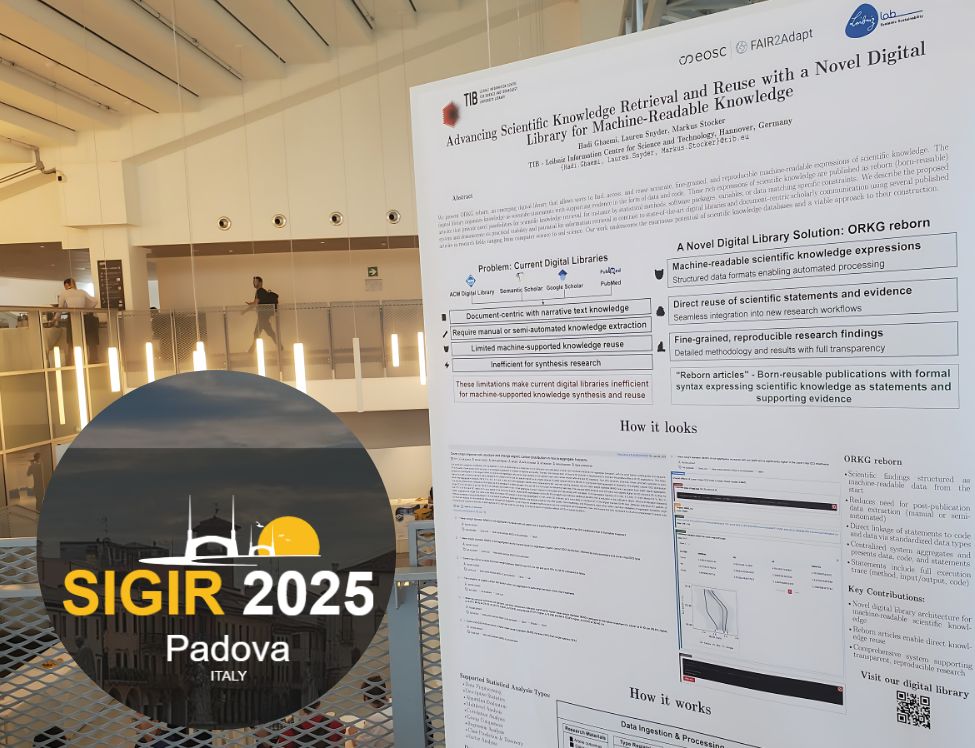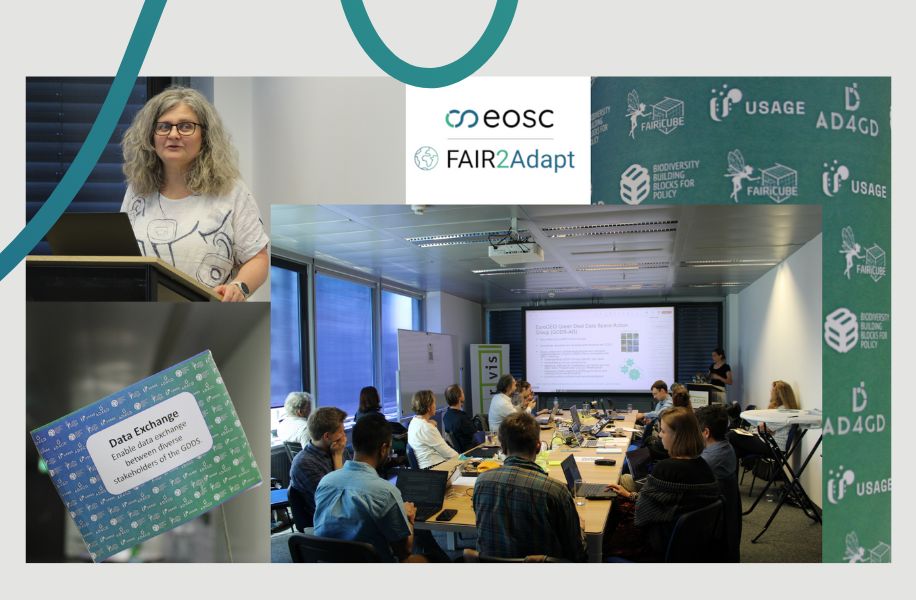The I-ADOPT Variable Modeling Workshops
Lead: Barbara Magagna (GFF)
Overview of the I-ADOPT Modeling Framework
The I-ADOPT Framework is a data modeling approach aimed at representing variables and observations in a FAIR (Findable, Accessible, Interoperable, Reusable) way. It is particularly relevant for improving the OGC OMS (Open Geospatial Consortium Observations, Measurements, and Samples) standard, which focuses on the observable properties in scientific observations. By extending OMS with I-ADOPT, we can enhance the quality and richness of data representation, particularly in environmental monitoring and research. The framework integrates multiple data models, including SensorThings API, to represent complex phenomena across various scientific domains.

Goals of the I-ADOPT Modeling Workshops
The I-ADOPT Modeling Workshops aim to bring together experts from diverse scientific and technical backgrounds to test, refine, and extend the I-ADOPT model using real-world data. The workshops are designed to explore how I-ADOPT can be integrated with OMS to support better data standardization and accessibility. The main objectives include:
- Addressing the representation of complex variables across different domains (e.g., biodiversity, atmospheric, marine data).
- Developing reusable patterns for variable modeling.
- Experimenting with the application of I-ADOPT to real datasets.
- Discussing integration pathways for future data services.
Summary of Activities During the I-ADOPT Modeling Workshops
The first workshop, held on February 20-21, 2025, at the Natural History Museum in Vienna (Austria), focused on biodiversity, marine, and freshwater variables. The second workshop, on March 10-11, 2025, at the Environment Agency Austria, concentrated on atmospheric variables and planning for the development of an LLM-based annotation service.
Key activities in these workshops included:
- Introducing the I-ADOPT framework and OMS standard.
- Discussing various models, including SensorThings API and the I-ADOPT extension to OGC-OMS.
- Identifying challenges in modeling complex variables such as distance, temperature, and fluxes.
- Exploring the potential to use I-ADOPT for enriching metadata and improving FAIR representation of variables.
- Experimenting with the integration of I-ADOPT into existing systems through GitHub templates and data repositories (e.g., EcoPortal).

Outcomes of the Workshops
The workshops produced several key outcomes:
- Patterns and Guidelines: The team identified reusable modeling patterns and guidelines for handling complex variables, such as those involving statistical parameters or entities with dynamic relationships.
- Data Service Roadmap: A clear roadmap for developing an I-ADOPT-enabled service was outlined, focusing on how to break down human-readable variable descriptions into I-ADOPT elements for machine processing, utilizing Large Language Models (LLMs) to automate the transformation and ensure scalable processing.
- Case Studies and Domain Collaboration: Collaborative work on case studies (e.g., biodiversity, marine, and atmospheric variables) provided actionable insights on how to align I-ADOPT with domain-specific vocabularies, such as those used in WMO (World Meteorological Organization).
- Enhanced Metadata: The workshops demonstrated how I-ADOPT can be used independently or in conjunction with OGC-OMS to enrich metadata, improving data accessibility and usability.

Why These Workshops and the I-ADOPT Framework Matter for FAIR2Adapt
The FAIR2Adapt project focuses on developing science-based climate adaptation strategies and ensuring the accessibility and interoperability of environmental data through FAIR principles. In this context, the I-ADOPT framework plays a crucial role in advancing the project’s goals by enabling better standardization of environmental variables, ensuring that data can be found, shared and reused across different domains.
- Improved Data Interoperability: The I-ADOPT framework provides a structured way to model complex environmental variables, ensuring that data from different domains (e.g., atmospheric, marine, biodiversity) can be integrated seamlessly. This is essential for FAIR2Adapt, which involves diverse datasets to assess climate change impacts and adaptation strategies across different regions.
- Enhanced Metadata for Climate Adaptation: By enriching data metadata through I-ADOPT, FAIR2Adapt can ensure that its environmental data is both machine-readable and easily discoverable. This is key for creating a robust knowledge base to support climate risk assessments and adaptation planning.
- Cross-Domain Collaboration: The workshops brought together experts from various fields, which aligns with the FAIR2Adapt project’s goal of fostering collaboration across scientific disciplines. The knowledge gained from these workshops helps improve how environmental data, relevant for adaptation to climate change, is modeled, shared, and reused.
Next Steps and Way Forward
The next steps for the I-ADOPT initiative include:
- Curating Variable Definitions: The I-ADOPT team will refine the variable definitions through community feedback, with a deadline for the first round of curated variables set for April 2025.
- Service Development: The development of a service that uses I-ADOPT to automate variable modeling will continue. The service will rely on large language models (LLMs) to recognize and map variable concepts, eventually transforming them into RDF (Resource Description Framework) for machine readability.
- Benchmarking: In the coming months, the team will define benchmarks for I-ADOPT-enabled data services, with validation of synthetic data expected in September 2025.
- Future Collaborations: The I-ADOPT team plans to expand collaborations with projects like FAIR2Adapt, PARC, and eLTER, further advancing the integration of I-ADOPT into global data infrastructures.
These workshops mark an important step in aligning complex environmental data with international standards for improved data sharing, accessibility, and interoperability. As the I-ADOPT framework evolves, it will play a crucial role in making environmental data more FAIR and accessible for global research efforts.



